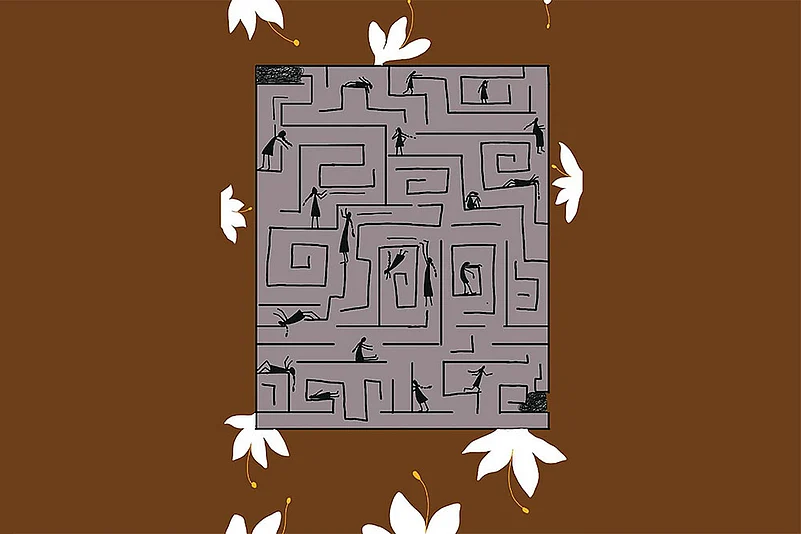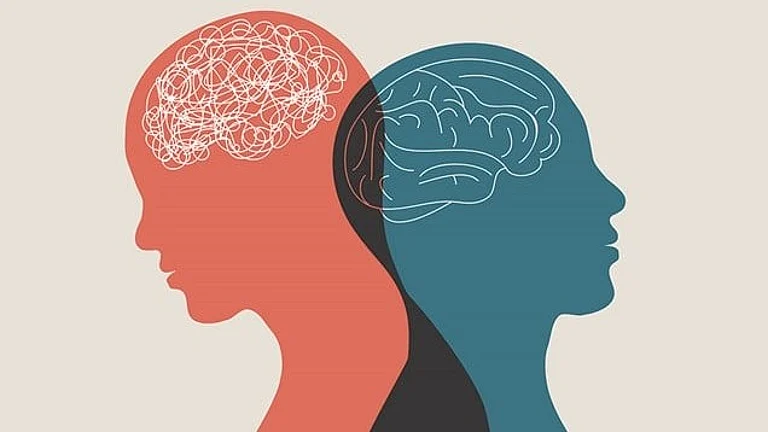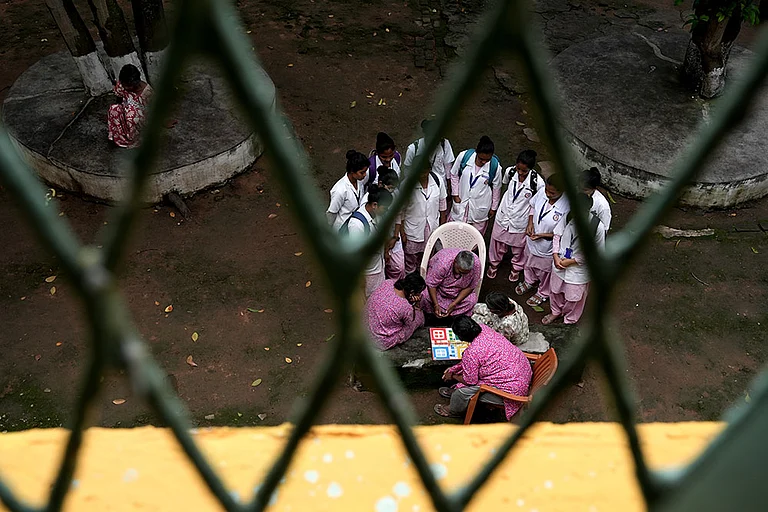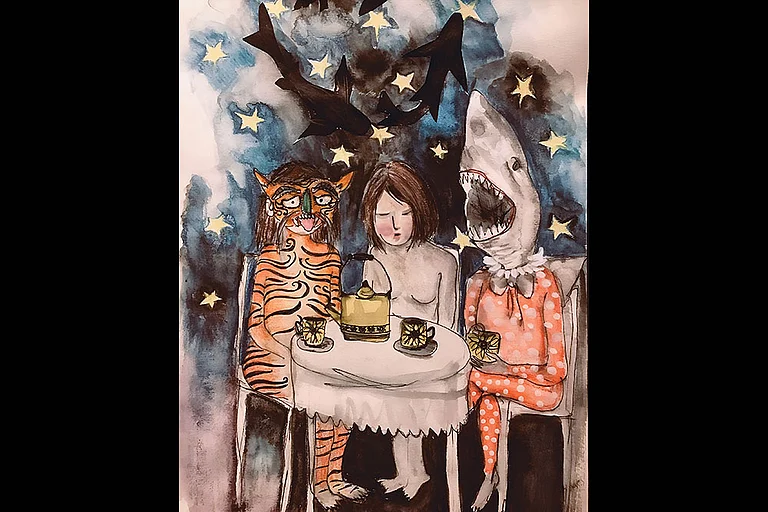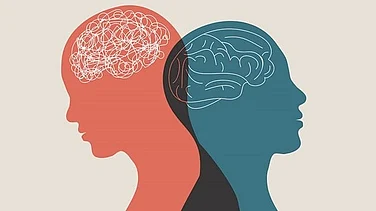
Summary of this article
Religion gives meaning by framing suffering and offering rituals of hope and belonging.
Faith can heal or harm, boosting resilience but also reinforcing stigma if misused.
Compassionate integration of religion and mental health can create true spaces of healing.
“Non nobis solum nati sumus.”
(Not for ourselves alone are we born)
—Marcus Tullius Cicero, Roman philosopher
From time immemorial, two fundamental forces have shaped the inner lives of human beings: the yearning for meaning and the need for solace. Faith and religion have responded to these ancient cries, offering explanations for suffering, rituals for hope, and a vision of something beyond the transient bruises of this world. Alongside mental health, though more formally studied in recent centuries, has always been a mirror of the human condition, reflecting our capacity for joy, despair, resilience, and breakdown.
The intersection of these two domains, faith and mental health, is both tender and tumultuous. Sometimes, religion has been a balm; at other times, a burden. But before we judge too quickly, we must first ask: Why does religion exist at all?
Anthropologists and evolutionary psychologists offer various explanations. Some argue that religion developed as an adaptive mechanism to foster social cohesion, moral order, and group survival. Others point to the human brain’s tendency to seek patterns and attribute agency, leading to beliefs in gods, spirits, or destiny.
But perhaps the most compelling explanation is existential: religion exists because suffering exists. Where science explains the how, religion addresses the why; it offers context to chaos and meaning amid mortality.
The Austrian psychiatrist, Viktor Frankl, a Holocaust survivor, put it poignantly: “Those who have a ‘why’ to live, can bear almost any ‘how’.” In his book Man’s Search for Meaning, he observed that human beings are not driven merely by pleasure or power, but by a deep and abiding quest for meaning. Religion, then, is not escapism, but a structured response to the absurdity of suffering.
Religious rituals and narratives do not merely transmit information; they shape identity and create shared space for grief, joy, repentance, and hope. The Hindu concept of dharma, the Christian notion of redemptive suffering, the Buddhist call to detach from desire, and the Islamic vision of surrender to God’s will all articulate distinct, yet overlapping, pathways for confronting suffering. These are not outdated frameworks. They continue to provide existential scaffolding in a world of uncertainty.
India offers a fascinating lens. We are a civilisation steeped in religion, temples, churches, mosques, gurudwaras, and ashrams, which are not only sites of worship, but places of social refuge, healing, and belonging. The village priest or fakir often precedes the psychiatrist in the healing hierarchy.
This proximity, however, has a double-edge. On the one hand, studies have shown that individuals with strong religious commitment often report higher levels of resilience, community support, and meaning in life. On the other hand, religious overtones can sometimes delay or misdirect psychiatric intervention, with mental illness being interpreted as divine punishment, karmic debt, spirit possession, or moral failure.
The stigma attached to mental illness in many Indian households is subtly reinforced by misreadings of scripture and ritual, where silence is mistakenly equated with sanctity, and suffering is spiritualised to the point of denial.
The integration of religious sensitivity into mental healthcare, especially in multicultural and pluralistic societies like India, is now recognised as crucial. But it must be grounded in compassion, not coercion.
At its best, religion can be healing. It provides a language to name pain, a rhythm to structure life, and a story larger than oneself. Studies from Harvard and the Mayo Clinic have documented the benefits of spirituality and prayer on psychological well-being, including reduced stress, increased gratitude, improved recovery outcomes, and enhanced hope.
Faith, in its healthiest form, creates meaning from adversity. It reorients the self from despair to purpose. It builds bridges where trauma erects walls.
Yet, faith is no panacea.
The stigma attached to mental illness in many Indian households is subtly reinforced by misreadings of scripture and ritual, where silence is mistakenly equated with sanctity.
When religion is used to silence doubt, suppress individuality, or impose guilt, it can become a source of neurosis. The dark shadow of religious authoritarianism has left too many broken souls in its wake, those tormented by scrupulosity, ostracised for nonconformity, or told their depression is the result of weak faith.
This is where religion must be honest with itself. A faith that cannot accommodate doubt is not faith; it is dogma dressed up in piety. Blind belief, enforced conformity, or the claim of absolute moral supremacy often causes more harm than healing. The fundamentalist who insists that God’s ways cannot be questioned forgets that even Job wrestled with God, and the Psalms are filled with cries of abandonment and despair.
As Martin Luther King Jr. wrote, “Unearned suffering is redemptive.” His faith was not escapist, but prophetic, challenging structures of injustice while offering a moral vision rooted in compassion. Faith, when mature, becomes a source of inner strength and outer resistance.
Let us be clear: doubt is not the opposite of faith. The opposite of faith is not inquiry but apathy. Faith and doubt are partners in the dance of the soul. Faith that is not occasionally troubled by doubt is a faith that has never been truly tested.
There is an old monastic wisdom, whispered in the silence of Eastern Orthodoxy, which says: “It is better to struggle with God than to pretend belief.” For in that struggle lies the deepest reverence.
The healthiest forms of religion embrace this tension. They invite questions, allow lamentation, and honour complexity. They do not pretend to have all the answers, but walk with you in the darkness.
Even saints and theologians have not been immune. Thomas Aquinas, an Italian priest, towards the end of his life, referred to all his theological writings as “straw” compared to the ineffable mystery of God. Mother Teresa, in private letters, admitted to decades of spiritual darkness. Yet their honesty deepens rather than diminishes their sanctity.
There is now a growing body of global research exploring how spirituality influences mental health. Meta-analyses have shown that people with strong spiritual or religious beliefs tend to experience:
Lower rates of depression and substance abuse
Higher resilience during trauma and bereavement
Greater life satisfaction and meaning
Better recovery rates from mental illness
In India, institutions like NIMHANS in Bengaluru have explored culturally embedded approaches to psychiatry that integrate spiritual beliefs with clinical care. But caution is essential. Not all religious beliefs are beneficial, especially when they foster guilt, shame, exclusion, or magical thinking that replaces evidence-based treatment.
Faith is a tool. Like fire, it can warm or destroy.
Unfortunately, there are many cases where religion has harmed mental well-being. History is littered with examples of spiritual abuse—from exorcisms gone wrong to shaming of sexual minorities, from forced conversions to misogynistic sermons.
In patriarchal interpretations of many world religions, women have often borne the burden, been denied autonomy, silenced, and spiritually manipulated in the name of piety.
This is not an argument against religion. It is a plea to purify it.
If religion claims to be a moral force, it must evolve with our understanding of human dignity, neuroscience, trauma, and emotional well-being. Compassion, not control, must be the centrepiece of any spiritual practice.
The way forward is not to discard religion, but to deepen it.
A spiritually mature faith does not promise a life without suffering; it offers the strength to endure it with grace. It does not deny mental illness; it walks beside those who suffer. It does not demand perfection; it welcomes brokenness.
In our time, when loneliness, anxiety and burnout afflict millions, religion must rediscover its role not as judge, but as companion.
There is hope in the resurgence of interfaith dialogue, trauma-informed chaplaincy, contemplative practices like mindfulness and silence, and the recovery of ancient wisdom that speaks to the heart.
We must remind ourselves of what Cicero once wrote: Non nobis solum nati sumus (we are not born for ourselves alone). The purpose of faith is not merely personal salvation, but communal healing. To hold space for others. To sit with their anguish. To let them know: You are not alone.
In the final analysis, religion and mental health need not be adversaries. When rightly understood, they are fellow travellers, companions on the long road of human vulnerability. One speaks the language of spirit, the other of science. But both seek the same thing: healing.
Let us build sanctuaries not just of stone, but of empathy. And let us recognise that the deepest forms of faith do not shout certainties, but whisper compassion.
The human soul, after all, does not need a perfect answer. It requires a listening ear and a hand to hold.
(Views expressed are personal)
MORE FROM THIS ISSUE
George John is a retired British Consultant Psychiatrist, originally from India


